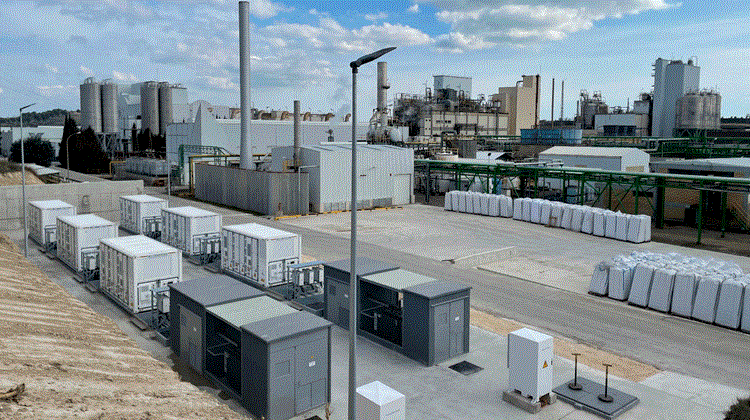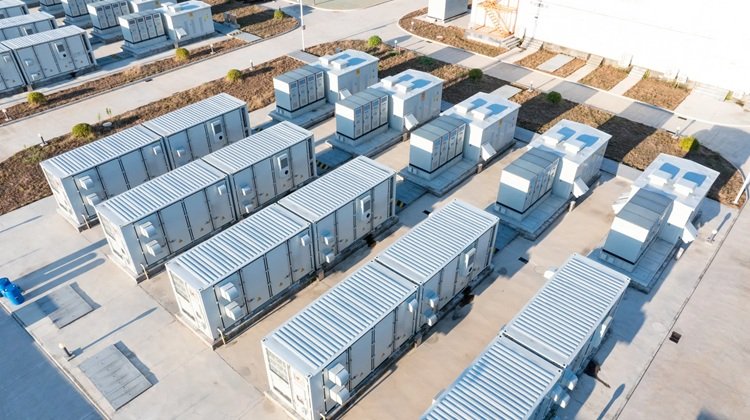The offshore wind energy sector expects to add 19.6 GW of new operational capacity globally before the end of 2025, according to projections from the Global Offshore Wind Report 2024 published by the World Forum Offshore Wind (WFO). This expansion marks a turning point in a context of financial instability, regulatory challenges, and pressure on the supply chain.
Over the past two years, the industry faced project delays and cancellations totaling nearly $100 billion in CAPEX, but the report maintains that “market fundamentals remain strong” and that developments will advance strongly this year.
During 2024, 11 GW of new offshore capacity was added, surpassing the 9.8 GW forecast for 2023. In total, 31 offshore wind farms were brought online, with 23 in Asia, 7 in Europe, and 1 in the United States.
Historic Award Record: 69 GW in 2024 and More in 2025
In parallel with operational expansion, 2024 marked the largest global volume of awarded capacity in the industry’s history: 69.0 GW were allocated under lease contracts, of which 64.1 GW excluding mainland China. This milestone represents a significant leap in the global pipeline.
By 2025, WFO anticipates that awards could climb to 79.8 GW, a 16% year-over-year increase. Australia will lead with up to 34.3 GW offered—although final capacity could be lower—followed by Finland (3 GW), Colombia (1.5 GW), the United Kingdom (4.5 GW of floating wind), and Germany (3.5 GW).
China leads operational expansion
Global operational capacity reached 78.5 GW by the end of 2024, with China being the most dynamic country: it added 6.8 GW in a single year, accumulating 38 GW, representing almost half of the global total in operation.
Currently, there are 313 active offshore wind farms: 181 in Asia, 129 in Europe, and only 3 in the United States. The average size of new projects was 336 MW, slightly lower than the 392 MW in 2023.
Among the year’s milestones, France commissioned its first floating farm, Provence Grand Large (25 MW), while South Korea inaugurated Jeju Hanlim (100 MW), its largest offshore wind project to date.
23 GW Currently Under Construction
At the end of 2024, 23 GW of offshore capacity was under construction, including key developments such as Kitakyushu Hibikinada (238 MW) in Japan, and new projects in the United Kingdom (5.4 GW) and the United States (4 GW).
“Growth continues with projects advancing through various stages of installation,” notes the WFO report, which considers “under construction” to include the installation of the first offshore component, such as cables or bases.
Historic Investments and High Transaction Volume
2024 also saw record-breaking investment, with more than $11 billion in offshore transactions and at least four deals worth more than $1 billion each.
The most significant sale was Dominion Energy’s 50% stake in the Coastal Virginia Project (USA) to Stonepeak Infrastructure Partners for $3 billion. In terms of capacity, the milestone was RWE’s acquisition of 4.2 GW in the UK following Vattenfall’s withdrawal from the Norfolk Boreas area due to a 40% cost increase.
OEMs: Siemens Gamesa consolidates its leadership
During 2024, contracts for 22.9 GW of offshore turbines were awarded, with Siemens Gamesa leading with 23%. It stood out particularly for the supply of 64 SG 14-236 DD units for the East Anglia Two project.
It was followed by Vestas (4.6 GW) and Ming Yang Smart Energy (2.2 GW). In the cumulative 2019-2024 period, Siemens Gamesa dominated with a 28% share, compared to MYSE at 13% and Vestas at 9%.The report highlights two approaches among manufacturers: while some are betting on increasingly larger turbines, others are opting for standardized and cost-effective models in the face of financial pressure, especially outside of China.
2033 Outlook
WFO estimates that global operating capacity will reach 394.4 GW in 2033, with Europe accounting for 45%. Ninety-five percent of this capacity will be fixed-base developments and only 5% will be floating projects.
The projection of 19.6 GW in operation by the end of 2025, along with record contracts awarded, confirms the structural acceleration of the offshore wind sector, despite the financial and political turbulence of the last two years.
1745999116101



























